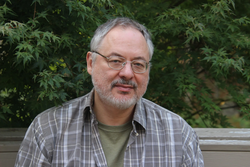Peter Turchin Quote
Around 2,500 years ago, we see qualitatively new forms of social organization—the larger and more durable Axial mega-empires that employed new forms of legitimation of political power. The new sources of this legitimacy were the Axial religions, or more broadly ideologies, such as Zoroastrianism, Buddhism, and Confucianism (and later Christianity and Islam). During this time, gods evolved from capricious projections of human desire (who as often as not squabbled among themselves) into transcendental moralizers concerned above all with prosocial behavior by all, including the rulers. The
Peter Turchin
Around 2,500 years ago, we see qualitatively new forms of social organization—the larger and more durable Axial mega-empires that employed new forms of legitimation of political power. The new sources of this legitimacy were the Axial religions, or more broadly ideologies, such as Zoroastrianism, Buddhism, and Confucianism (and later Christianity and Islam). During this time, gods evolved from capricious projections of human desire (who as often as not squabbled among themselves) into transcendental moralizers concerned above all with prosocial behavior by all, including the rulers. The
Related Quotes
About Peter Turchin
Peter Valentinovich Turchin (; born 22 May 1957) is a Russian-American complexity scientist, specializing in an area of study he and his colleagues developed called cliodynamics—mathematical modeling and statistical analysis of the dynamics of historical societies.
Turchin is an emeritus professor at the University of Connecticut in the departments of ecology and evolutionary biology, anthropology, and mathematics. He is a project leader at the Complexity Science Hub Vienna and a research associate at the School of Anthropology of the University of Oxford.
He was editor-in-chief and remains a member of the editorial board at Cliodynamics: The Journal of Quantitative History and Cultural Evolution. Turchin is a founding director of the Seshat: Global History Databank. He was a director of the Evolution Institute. In 2021, he was elected a fellow of the American Association for the Advancement of Science.
Turchin is an emeritus professor at the University of Connecticut in the departments of ecology and evolutionary biology, anthropology, and mathematics. He is a project leader at the Complexity Science Hub Vienna and a research associate at the School of Anthropology of the University of Oxford.
He was editor-in-chief and remains a member of the editorial board at Cliodynamics: The Journal of Quantitative History and Cultural Evolution. Turchin is a founding director of the Seshat: Global History Databank. He was a director of the Evolution Institute. In 2021, he was elected a fellow of the American Association for the Advancement of Science.
